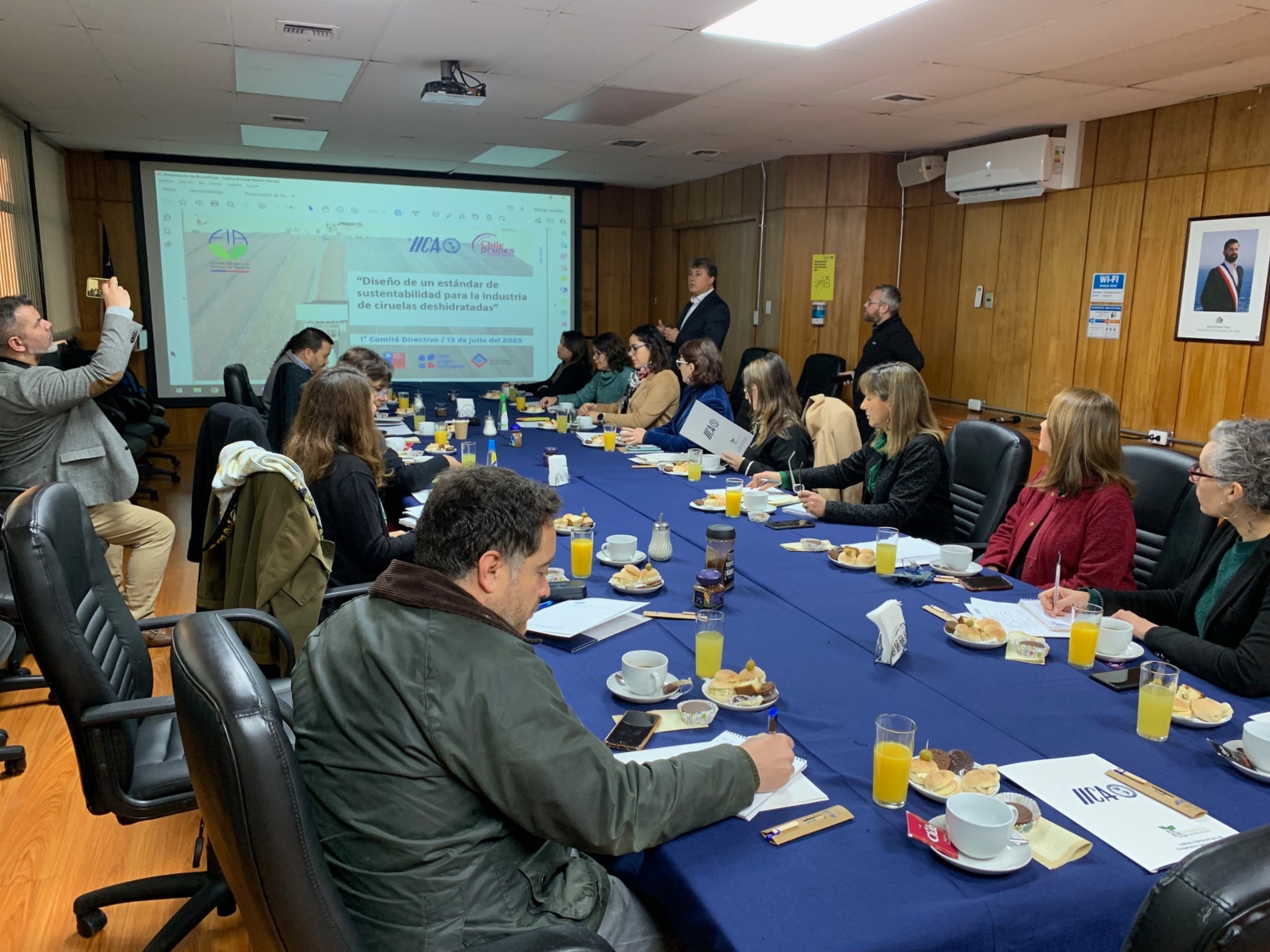After the first 12 months out of a total of 28 to be able to install a sustainability certification, it has been possible to develop a sectoral standard that is unique in the world in this industry, and now we are entering the Audit, Training and Certification stages.
In July 2022, various institutions in Chile, led by Chileprunes, came together with the objective of developing and implementing a sustainability standard for the agro-industrial sector of prunes, and that would have a broad validation of the interest groups of the sector.
One year after that milestone, all the actors of the Steering Committee met at the Ministry of Agriculture to show the degrees of progress that the project has had, as well as the next steps that are coming.
Among the attendees were representatives of ProChile, the Foundation for Agrarian Innovation (FIA), the Inter-American Institute for Cooperation on Agriculture (IICA), the Office of Agrarian Studies and Policies (ODEPA), the Agency for Sustainability and Climate Change (ASCC), Ciruelas Chile and the ministry itself.
On the occasion, progress was made known regarding the development of a sectoral standard that is unique in the world for this industry, with the establishment of work, diagnosis and benchmark committees. preparation of a list of good practices and a validated sectoral standard.
Likewise, the next steps were announced: The first one, Audit -4 months-, considers piloting at the company level, identification of gaps and design of a training program based on the gaps detected. Then comes a Training -6 months-, which considers courses, training, webinars and seminars, among others. Finally, the Certification implies ensuring that this standard is validated at an international level and an accompaniment in the certification process for all partners.
What is a sustainability certification required for? “It is necessary to recognize what is done well, to have a clear direction regarding where we should go and to be proactive in an adverse and changing communication environment regarding the environment and the agro-industrial sector,” says Pedro Acuña, executive director of Chileprunes.
The milk and poultry and pork sectors already have this seal, so the prunes industry is at the forefront in terms of sustainability worldwide.
An impact of more than 300 companies of different sizes is estimated, including partners and, mainly, suppliers of the prunes industry. Of course, there is no mandatory action, each producer must define what actions he wishes to include in his certification process.
“Prunes have positioned themselves in the world as a fruit that brings multiple health benefits, and now they need to be associated with a pleasant product that is concerned about the environment,” says Marcela Samarotto, from FIA, while Loreto Sepúlveda from ProChile highlights the importance of public-private work to maintain the world leadership of this fruit.



